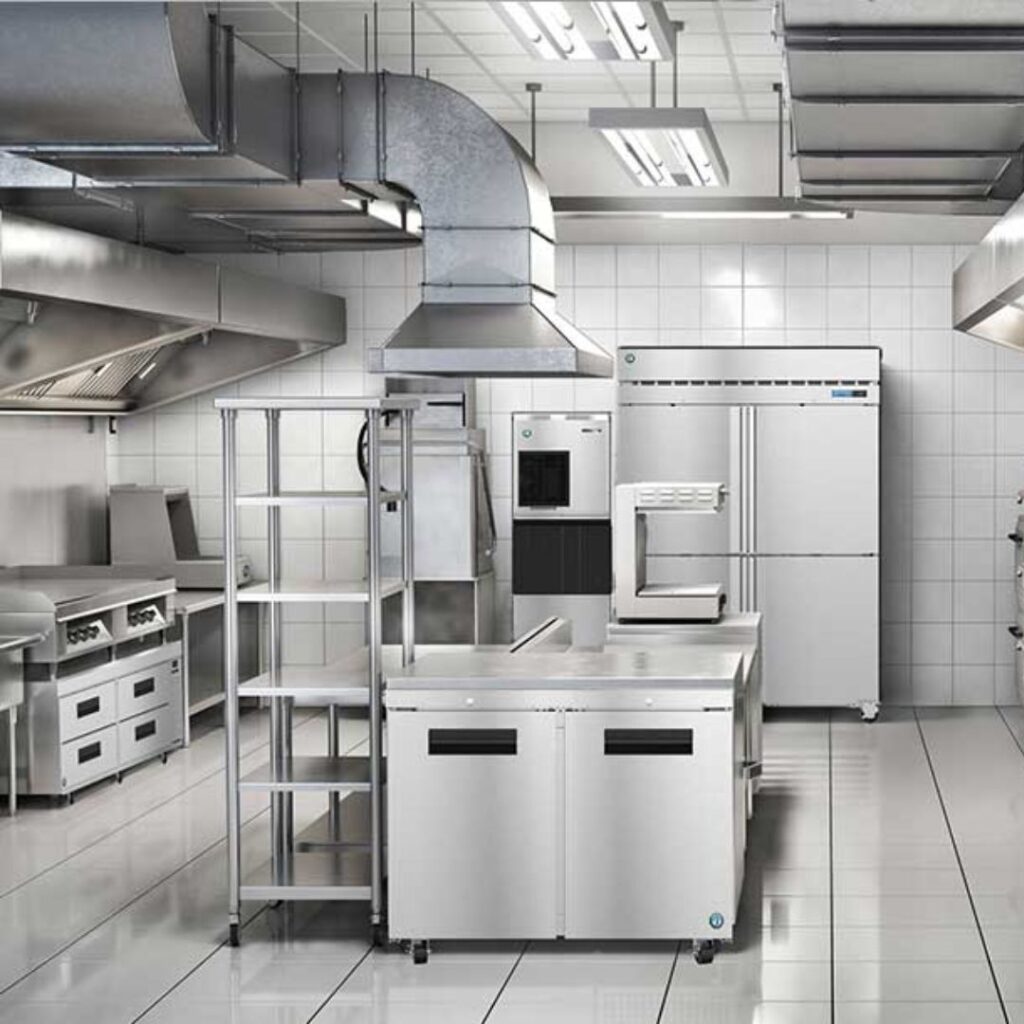The Importance of Ice in Crafting Cocktails

Enhancing Flavor and Presentation When it comes to having a refreshing, relaxing cocktail, what’s the first thing that comes to mind? Perhaps it’s the mix of spirit, the burst of fresh flavors and ingredients, or the expertly garnished glassware. While each element is crucial in crafting a spectacular cocktail, there is one ingredient that often goes unnoticed. Some say it is the most vital element in the perfect cocktail—the ice. In this article, let’s delve into the world of ice in cocktail making. From its history to the science behind the cube, you will gain a newfound appreciation for this often-overlooked element that elevates your cocktail experience. A Look Back in Time The usage of ice in cocktails dates back centuries. In the early 19th century, ice became more accessible due to technological advancements in ice harvesting and storage. It was during this time that cocktails started to gain popularity. Jerry Thomas, often referred as the “father of American mixology,” made significant contributions to the cocktail world during his time. In his book, “The Bartender’s Guide,” published in 1862, featured numerous cocktail recipes that called for ice. Not only was ice used for chilling drinks, but Thomas also recognized its purpose in dilution and flavor balancing. Ice Science Let’s breakdown the science of ice, it is no secret, ice is simply frozen water. But it’s more complex than just that. At a molecular level water molecules arrange themselves in a hexagonal lattice when frozen. This arrangement creates a solid structure with open spaces. The most vital property of ice in cocktails is its ability to regulate temperature through heat exchange. When ice is added to a cocktail shaker or glass, it absorbs heat from the surrounding liquids, causing it to melt. This process is crucial for achieving the desired temperature and dilution in cocktails. Ice Forms and Their Uses Not all ice is created equal, and bartenders have long recognized the importance of using the right ice type for different purposes. See below for a list of Hoshizaki’s specialty ice and their uses. Sphere Ice Sphere ice, also known as ice balls or ice spheres, is the perfect ice cube shape for bourbon, scotch, and whiskey. Unlike traditional ice cubes, which have a low surface area-to-volume ratio and melt quickly, sphere ice has a low surface area-to-volume ratio, which means sit melts more slowly. 1BY1 Ice Similar to sphere ice, 1by1 ice melts slowly. They are the ideal ice cube for stirred cocktails where you want a little ice but don’t want to water it down too much, like a Negroni or an Old Fashioned. 2BY2 Ice A 2by2 ice cube gives cocktails and spirits a glam look while maintaining a superior cocktail chill with minimal dilution. Increasing flavor and presentation of specialty cocktails or straight spirits like bourbon or scotch Ice’s Role in Cocktails Now, let’s dive into the various roles ice plays in crafting the perfect libation: Temperature Control One of the primary functions of ice is to chill cocktails to the desired temperature. A well-chilled cocktail is not only more refreshing, but also allows the flavors to shine. Ice achieves this by absorbing heat from the liquid, lowering its temperature. Dilution Dilution is a critical aspect of cocktails balance. It involves adding water to the drink, which can help mellow the intensity of spirit and enhance the overall flavor. Ice contributes to dilution as it melts. The rate of dilution can be controlled by choosing the right ice type. Visual Presentation Presentation matters in the world of cocktail. Clear and creatively shaped ice adds visual appeal to drinks, making them more enticing. It’s no secret that we often drink with our eyes first. Maintaining Consistency Bartenders rely on ice to maintain consistency in cocktail preparation. By following established recipes and using standardized ice forms, they can ensure that each drink meets customers’ expectations. Conclusion As simple as it is, ice truly can make or break a good cocktail. While it is not the focal point of the drink, you certainly can’t go without it. When used thoughtfully, it can transform a good drink into a great one.
The Importance of Commercial Refrigerators in the Food Industry

The Importance of Commercial Refrigerators in the Food Industry Commercial refrigerators are an essential equipment in the food industry. They are used to store and preserve food products at safe temperatures, keeping them fresh and safe for consumption. Whether running a small bakery or a large restaurant, a commercial refrigerator is a crucial investment to ensure the quality of your food products. In this context, we will explore the different types of commercial refrigerators, their features and why they are crucial for business in the food industry. Types of Commercial Refrigerators Several types of commercial refrigeration are available in the market, each with unique features & benefits. The most common types of commercial refrigerators are: Reach-In Refrigerators: These are the most popular commercial fridges, commonly found in restaurants, cafeterias, and catering businesses. They are designed to be used in kitchens and provide easy access to stored food items. Under counter fridge freezers: as the name suggests, these refrigerators are designed to fit under counters or worktables, making them ideal for small kitchens with limited space. Walk-In Freezers: Large freezers allow people to walk in and out of them. They are commonly used in large-scale food businesses such as restaurants, hotels, and catering companies. Merchandise Refrigerators: These refrigerators are designed to showcase food products such as desserts, sandwiches, and beverages. They are commonly used in cafes, convenience stores, and supermarkets. Features of Commercial Refrigerators Commercial refrigerators have various features that make them ideal for storing food products. Some of them most common features include: Temperature Control: Commercial fridge freezers have temperature control features that allow businesses to adjust the temperature according to their needs. This is crucial in ensuring food products are stored at safe temperatures, preventing spoilage and contamination. Energy Efficiency: Many commercial refrigerators are designed to be energy-efficient, helping businesses save their energy bills while still maintaining storage temperatures. Durability: Commercial fridges are designed to be durable & withstand the rigors of daily use in busy kitchens. Easy Maintenance: Most commercial freezers are designed with easy-to-clean surfaces and removable parts, making maintenance, and cleaning a breeze. Why are Commercial Refrigerators Important in the Food Industry? Commercial refrigeration is essential in the food industry for many reasons. Continue reading for reasons why companies in the food industry rely on refrigerators. Food Safety: refrigerators are critical in ensuring food products are stored at safe temperatures, preventing spoilage and contamination. This is especially important for businesses that handle perishable food products such as meat, dairy, and produce. Cost Saving: Investing in high-quality refrigeration can help businesses save on energy bills and reduce food waste. By maintaining safe storage temperatures, businesses can reduce risk of spoilage & extend the shelf life of their food products. Compliance: The food industry is highly regulated, with strict food safety & storage guidelines. Freezers are designed to meet these regulations, helping businesses comply with food safety standards and avoid penalties. Product Quality: Fridges help businesses maintain the quality of food products, ensuring they are fresh and delicious when served to customers. This is crucial for businesses that rely on the quality of their food products to build a loyal customer base. Conclusion Commercial refrigerators are an essential investment for businesses in the food industry. They play a critical role in ensuring food safety, reducing costs, complying with regulations, and maintaining the quality of food products. Whether you are running a small bakery or a large restaurant investing in high-quality commercial refrigeration is a must to ensure the success and longevity of your business. When choosing a commercial fridge, it is essential to consider your specific needs and features that will best meet them. Look for a reputable manufacturer and supplier that can provide quality products and reliable support. By investing in a commercial freezer, you are investing in the safety and success of your business in the food industry.
